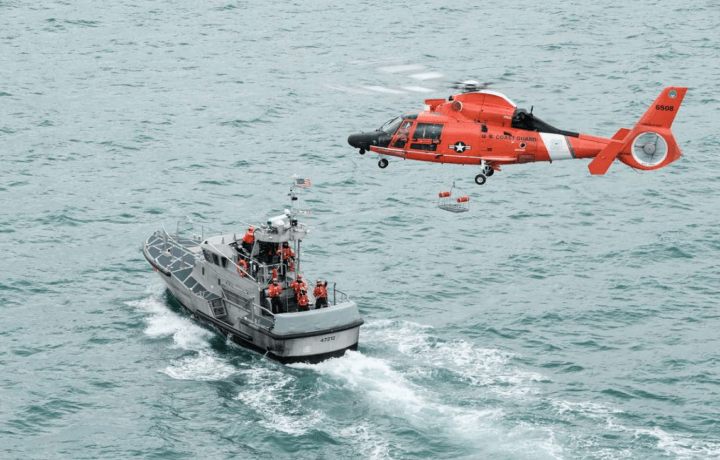The United States Coast Guard finds itself in a peculiar position during the continuing partial shutdown of the federal government. Although the shutdown only affects 25% of the government, the Department of Homeland Security, the Coast Guard’s parent organization, is among the departments shuttered by a lack of appropriations.
In previous shutdowns, there have been special appropriations to ensure that the armed forces were paid despite other parts of the government closing. This time around, with Department of Defense funding in place, Congress neglected to care for the Coast Guard.
As vital to national defense as any other service
The Coast Guard is, both practically and legally, the nation’s fifth armed service. Its members are on the frontlines daily, interdicting drugs—and importantly for the current situation, migrants seeking to enter the country illegally by sea—as well as standing watch for vessels in distress around the clock.
But because it is not part of the Department of Defense, its members are not enjoying the same protections that the DoD has in previous shutdowns. And there is a surprising lack of accurate information regarding how the shutdown is affecting the service’s workforce.
Let’s make one thing clear at the outset. As of this morning, no Coast Guard member has missed a paycheck. But that will change Tuesday morning. Still, the stories you may have seen about how Coast Guard members have been “weeks without pay,” are not entirely accurate.
Tuesday is the real start of the USCG crisis
Unlike other DHS employees who are paid biweekly according to the General Schedule pay scale, the military members of the Coast Guard are paid the same as the DoD: on the first and the 15th of each month, using the same pay scale as the Army, Navy, Marine Corps, and Air Force. The continuing appropriation that kept the Coast Guard funded expired with the other appropriations on December 22. But as 2018 drew to a close, the administration “identified a way” to pay the Coast Guard’s military personnel on December 31.
Coast Guard officials have been circumspect as to how they managed to find the $75 million necessary to make its military payroll, but that is of little consequence for the 41,000 men and women who received a paycheck on New Year’s Eve, when they had been told not to expect one. Barring a miraculous compromise today, there will be no such last-minute reprieve this time.
During previous shutdown dramas, banks that cater to the military have made zero-interest loans to their depositors based on their regular pay. Not all of them are doing so this time around.
The Pentagon Federal and Navy Federal Credit Unions are still offering those members who normally receive their pay as a direct deposit no-interest loans (in the form of overdraft protection) of as much as $6,000. It’s perhaps not enough to carry everyone through all of this shutdown, but it certainly goes a long way.
USAA, however, is not offering its pay-protection program this time around, although it is making low-interest loans available—to those who otherwise qualify for credit.
Semper Paratus
Coast Guard members and “exempted” government civilian employees will eventually receive back pay. Furloughed workers may or may not, depending on the ultimate agreement Congress and the president reach. Contractors caught-up in the drama might not have the same protections; contracts are only paid as work is performed.
The Coast Guard’s motto is “Semper Paratus”—always ready. While the service is always ready to serve the public, its individual members cannot be expected to be “always ready” to deal with the government’s inability to compromise.
Any deal to end the shutdown should make sure these brave and dedicated public servants, and the dedicated civil servants who support them, are fully cared for. We wouldn’t tolerate a situation where soldiers, sailors, airmen, and Marines go without pay. We ought not tolerate it for the Coast Guard either.




